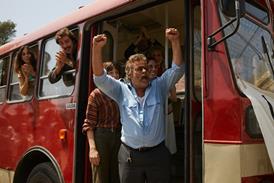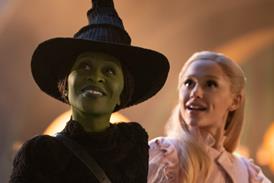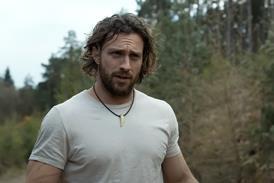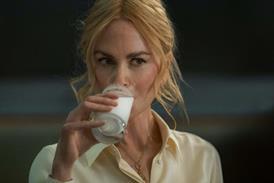Dir/scr: Barbara Albert.Austria. 2006. 85mins.
An ensemble piece exploring the existential crisises of five thirtysomething women,Barbara Albert's Falling plays like acoded conversation between its writer/director and her female cast to which therest of us are not privy. A secretive film-maker who likes her audiences to digaround and supply the details suggested by her images, Albert may have gone toofar this time, never providing enough incentives for her viewers to engage withthe work.
On paper Falling seems tailor-made for female demographics,especially in Western Europe, with characters and issues common to most cultures.But any feelings of identification are more down to the efforts of the audiencethan Albert's presentation, while the plot's potential - think The Big Chill - is never successfully exploited.Even if Albert's name, by now well established on the festival circuit (thefilm premiered in competition at Venice), will help Falling travel, its subsequent survival commercially is less thanself-evident.
We are introduced first to Nina(Nina Proll), unemployed and seven-months pregnant,soon followed by the erstwhile friends she hasn't seen since high school 14years ago. There is Brigitte (Brigit Minichmayr), whohas stayed close to home and teaches German and history in the local school; Alex(Ursula Strauss), who for lack of anything better unenthusiastically works inan unemployment office; Carmen (Kathrin Resetarits) who has moved to Germany and become an actress;and finally, Nicole (Gabriela Hegedus), who has verygood reason, it transpires by the end, to be in a foul mood.
All five gather to attendthe funeral of their beloved teacher, who it later emerges had an affair withmore than one of them. Gradually the gathering moves from the wake to a weddingand then a disco bar, during which the women drink too much and gingerly revealmany secrets to each other. By dawn, some are ready to undergo dramatic changesto their lives.
As they proceed, Albert introducesmore information about their histories, often using brief flashback stills fromthe past to shed more light on their present feelings.
Keeping everything on aneminently predictable level, Albert's bland characters are unexceptional in anysense and their crisis could be interpreted as typical to an entire generation.Neither the script nor the cast's dedicated performances manage to generatemuch interest in what happens to them or why.
At best Falling provides a routine and unsurprising view of this generation- but observations such as the age group's waning interest in politics or thelack of true freedom despite the pretensions of Western society hardly count asmomentous revelations.
More significant is how all fiveleading characters live in an emotional vacuum, locked into their personalpredicaments to the extent that if a close relationship existed between themonce then it is barely noticeable now. Sadly, none of the characters is sufficientlyinteresting to generate more than passing curiosity in her fate. Rather everythingunfolds as expected, and editing and direction addslittle sense of urgency or relevance.
Of the five actresses,Ursula Strauss and Gabriela Hegedus have no problems withthe more emotive of the women, while Birgit Minichmayr suggests depths that are never explored in therole she is assigned. Nina Proll and Kathrin Resetarits both workefficiently with the basic and sympathetic sketches they have been handed.
Production company/backers
Coop99 Filmproduktion
ORF
ZDF/Arte
International sales
Film Distribution
Producers
Antonin Svoboda
Martin Gschlacht
Bruno Wagner
Barbara Albert
Cinematography
Bernhard Keller
Editor
Karina Ressler
Production design
Katharina Woppermann
Main cast
Nina Proll
Birgit Minichmayr
Gabriela Hegedus
Ursula Strauss
Kathrin Resetarits
Ina Strnad


















No comments yet